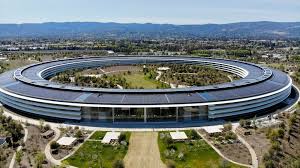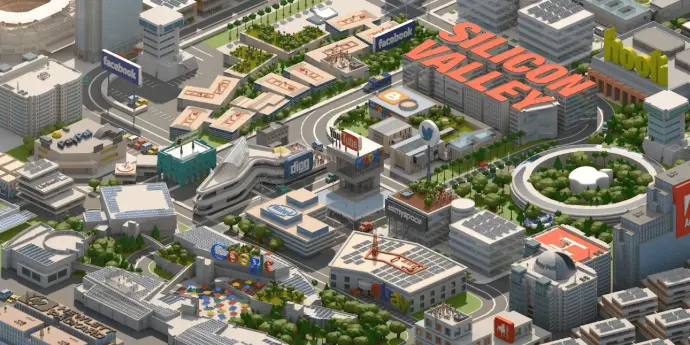Meet Your New Co-Worker: Silicon Valley Unleashes the AI Agent Revolution
Keywords: AI Agent, Autonomous AI, Silicon Valley Breakthrough, Human-like AI, Generative AI, Future of Work, Gemini 2.5, Cognition AI, SEO
If you thought Generative AI had peaked with witty chatbots and stunning images, think again. Silicon Valley has quietly—and now, loudly—moved on to the next monumental breakthrough: Autonomous AI Agents.
This isn’t a new model that just generates text; this is AI that can act. It can go to your computer, navigate the web, use software, and complete complex, multi-step projects without you babysitting it. This shift from Generative AI to Agentic AI is the most significant technological pivot of the decade.
Here’s why your digital life (and your job) is about to get a whole lot more interesting.
💡 From Chatbot to Co-Worker: What Exactly is an AI Agent?
Think of a traditional chatbot like a brilliant assistant who is glued to their desk and only gives you verbal advice.
An AI Agent, by contrast, is an assistant who:
Sets its Own Goals: You give it a high-level command (e.g., “Research the top 5 competitors in the electric vehicle market and draft a summary report.”)
Plans its Steps: It breaks the goal down into tasks — search company news, analyze financial statements, synthesize findings, and write the report.
Executes Actions: It opens browsers, clicks links, scrolls, types queries, uses APIs, and integrates data from multiple sources — all autonomously.
Self-Corrects: If a link breaks or the data is bad, it doesn’t stop. It recognizes the failure and tries a different strategy, just like a human would.
The breakthrough?
Silicon Valley giants like Google (with their new Gemini 2.5 Computer Use model) and revolutionary startups like Cognition AI (creator of Devin, the autonomous software engineer) are giving AI the eyes, hands, and self-direction it needs to master digital tools.

🚀 Why This is the True Human-Like AI Leap
For years, we’ve wanted AI to behave more human-like, and this is finally it. Here’s why:
1. Mastery of the Interface
Until now, AI was trapped within its own code. Today’s Agents can navigate complex interfaces — the buttons, menus, and forms we use every day — with human-level dexterity.
They literally see your screen and figure out what to click next.
2. Persistent Reasoning
These systems don’t just respond; they maintain long-term goals, managing a project across hours or even days.
This sustained, deliberate focus mirrors true human productivity.
3. The End of Busywork
This technology is explicitly designed to handle the “scutwork” and repetitive tasks that slow down engineers, marketers, lawyers, and researchers.
Imagine an AI that can manage IT tickets, audit customer service logs, or even write, debug, and deploy code end-to-end.
🔮 What’s Next: The Future is “Agentic”
The buzz in Silicon Valley isn’t just hype; it’s a dramatic pivot already reshaping enterprises.
AI-Driven Code Generation: Tools are emerging where you can give a simple request, and the AI Agent builds a functional application, often faster and more efficiently than a human.
Super-Sized Teams of One: The rise of Agentic AI empowers small teams to achieve the scale of large corporations.
The next billion-dollar startup might be a dozen people strong — each using a personal fleet of AI agents to multiply their output.
The New SEO – Generative Engine Optimization (GEO):
As AI models increasingly bypass traditional search engine result pages (SERPs) to give a single, definitive “AI Answer,” the old rules of SEO are being rewritten.
The focus is shifting to Generative Engine Optimization (GEO) — optimizing your brand for the signals of authority, clarity, and trustworthiness that AI agents use to select their ‘trusted’ sources.

🧠 The Final Word
The AI Agent isn’t just an upgrade; it’s a fundamentally new collaborator that moves AI from a calculator and a typewriter into a true digital teammate.
Silicon Valley is betting everything on this agentic future, and the message is clear:
The most valuable skill moving forward won’t be avoiding AI — it will be learning how to manage your team of intelligent agents to unlock levels of productivity we’ve only dreamed of.
Are you ready to hire your first AI co-worker?
The future of work is already here.
An AI Agent is an autonomous system capable of performing digital tasks on its own — from browsing the web and analyzing data to executing software operations — without human supervision.
A chatbot responds to user queries through text-based conversations.
An AI Agent, on the other hand, takes actions — it can open applications, perform tasks, self-correct errors, and complete goals like a real human assistant.
Major players include Google, with its Gemini 2.5 Computer Use model, and Cognition AI, the creator of Devin, the world’s first fully autonomous software engineer.
AI Agents are expected to automate repetitive work, freeing up professionals for creative and strategic thinking. Instead of replacing workers, they will likely become co-workers, boosting productivity and innovation.
No. While they can handle routine and technical tasks autonomously, AI Agents lack emotional intelligence, ethics, and creativity, which remain human strengths. The future lies in collaboration, not replacement.